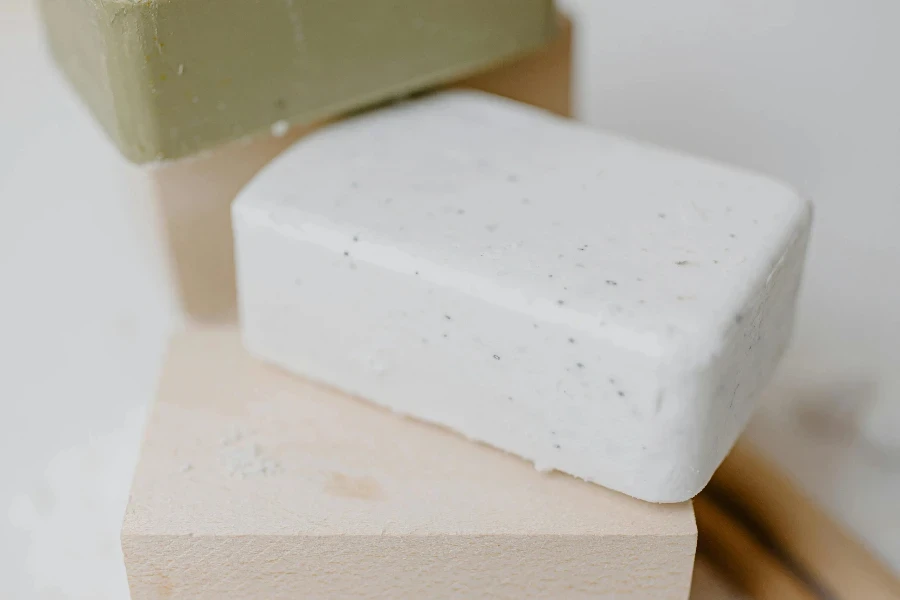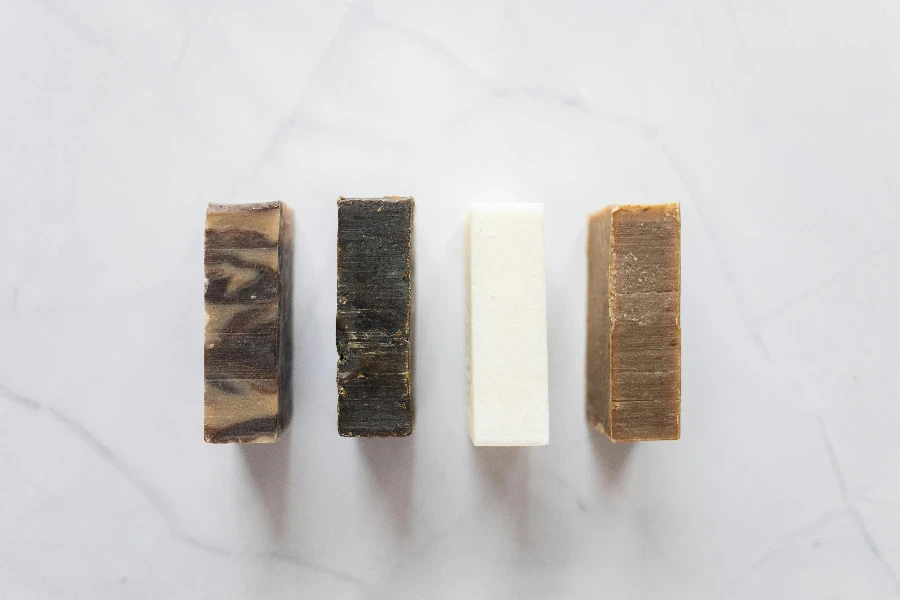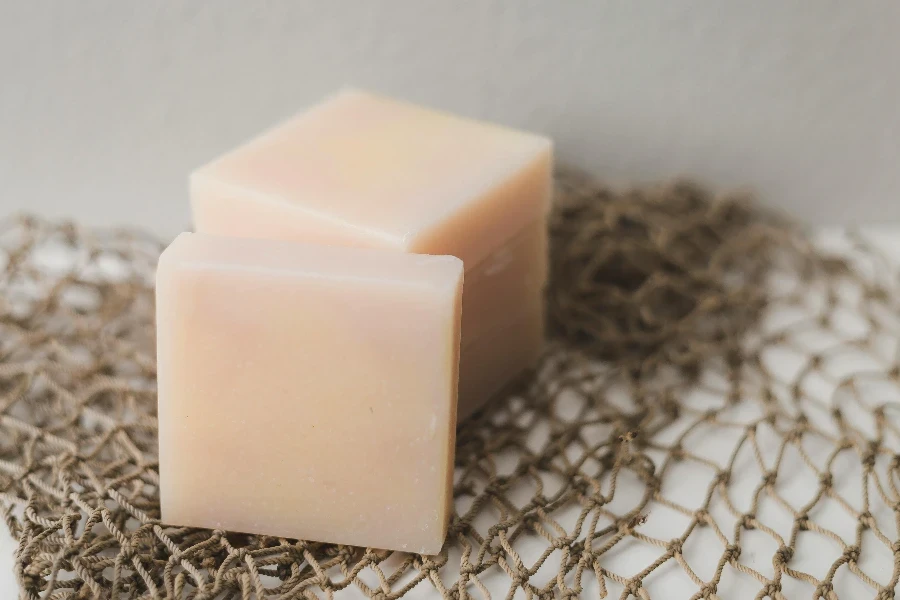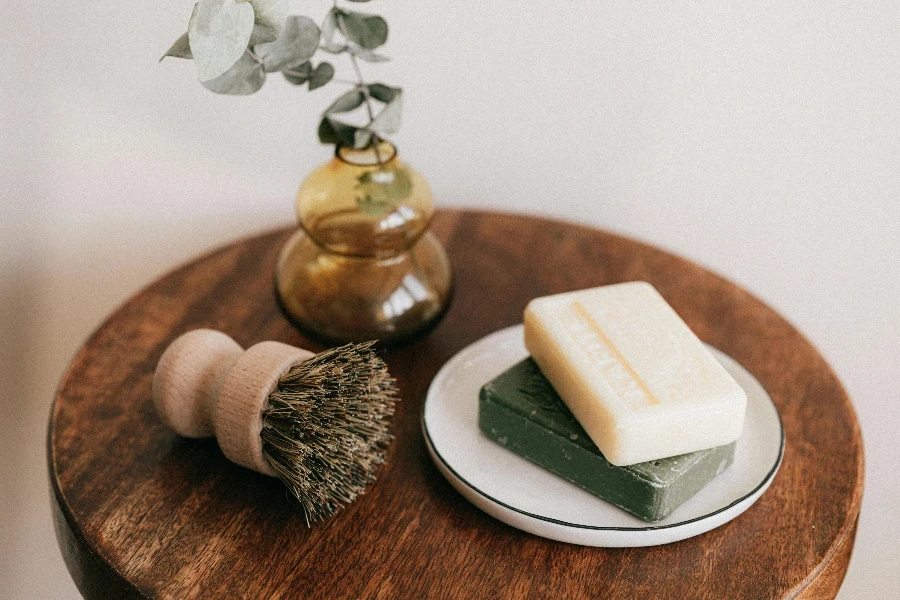In the ever-evolving world of skincare, goat’s milk soap has emerged as a standout product, captivating the attention of consumers and businesses alike. This natural skincare marvel is not only rich in beneficial nutrients but also aligns perfectly with the growing demand for sustainable and clean beauty products.
Table of Contents:
– Exploring the Allure of Goat’s Milk Soap: A Rising Star in Natural Skincare
– Diverse Varieties of Goat’s Milk Soap: Catering to Different Consumer Needs
– Addressing Consumer Pain Points: Solutions for Common Skincare Issues
– Innovations in Goat’s Milk Soap: New Products and Trends
– Wrapping Up: The Future of Goat’s Milk Soap in the Skincare Industry
Exploring the Allure of Goat’s Milk Soap: A Rising Star in Natural Skincare

Defining Goat’s Milk Soap and Its Unique Benefits
Goat’s milk soap is a natural skincare product crafted from the milk of goats, renowned for its exceptional moisturizing and nourishing properties. This soap is packed with vitamins, minerals, and fatty acids that are highly beneficial for the skin. The lactic acid in goat’s milk helps to gently exfoliate dead skin cells, revealing a smoother and more radiant complexion. Additionally, the presence of vitamin A aids in repairing damaged skin tissue and maintaining healthy skin. The natural fats in goat’s milk create a creamy lather that hydrates and softens the skin, making it an ideal choice for those with sensitive or dry skin conditions.
Analyzing Market Potential: Demand Growth and Social Media Trends
The market potential for goat’s milk soap is significant, driven by a surge in consumer preference for natural and organic skincare products. According to recent data, the global bar soap market, which includes natural variants like goat’s milk soap, grew from USD 33.84 billion in 2023 to USD 35.37 billion in 2024, with a projected CAGR of 4.69% reaching USD 46.64 billion by 2030. This growth is fueled by increasing consumer awareness about personal hygiene and the benefits of natural ingredients. Social media platforms play a crucial role in this trend, with hashtags such as #GoatsMilkSoap and #NaturalSkincare gaining popularity and driving consumer interest. The visual appeal and user testimonials shared on these platforms further amplify the product’s reach and credibility.
Aligning with Broader Trends: Sustainability and Clean Beauty
Goat’s milk soap is not just a skincare product; it is a symbol of the broader trends of sustainability and clean beauty. Consumers today are more eco-conscious and seek products that have minimal environmental impact. Goat’s milk soap fits this criterion perfectly, as it is often produced using sustainable farming practices and natural ingredients. The clean beauty movement, which emphasizes products free from harmful chemicals and synthetic additives, also finds a strong ally in goat’s milk soap. This alignment with eco-friendly and health-conscious values makes goat’s milk soap a preferred choice for modern consumers who prioritize both their well-being and the planet’s health.
In conclusion, goat’s milk soap is more than just a skincare product; it is a testament to the growing consumer shift towards natural, sustainable, and clean beauty solutions. Its unique benefits, coupled with the rising market demand and alignment with broader trends, make it a compelling product for business buyers in the beauty and personal care industry.
Diverse Varieties of Goat’s Milk Soap: Catering to Different Consumer Needs

Unscented vs. Scented Goat’s Milk Soap: Pros and Cons
Unscented goat’s milk soap is a staple for consumers with sensitive skin. Its lack of added fragrances minimizes the risk of irritation, making it a preferred choice for individuals prone to allergies or skin conditions such as eczema. The simplicity of unscented soap also appeals to those who prefer a more natural skincare routine. On the other hand, scented goat’s milk soap offers aromatic benefits that enhance the bathing experience. These soaps often incorporate essential oils or natural fragrances, providing a sensory appeal that can be both relaxing and invigorating. However, the added scents can sometimes cause irritation for those with particularly sensitive skin. Therefore, business buyers should consider their target market’s preferences and skin types when selecting between unscented and scented varieties.
Goat’s Milk Soap with Added Ingredients: Enhancing Benefits
Goat’s milk soap can be enriched with a variety of additional ingredients to enhance its skincare benefits. For instance, honey is a popular additive known for its antibacterial and moisturizing properties, making it ideal for acne-prone skin. Oatmeal is another common ingredient that provides gentle exfoliation and soothes irritated skin, making it suitable for those with conditions like psoriasis. Essential oils such as lavender or tea tree oil can also be added to goat’s milk soap to offer additional therapeutic benefits, such as calming the skin or providing antiseptic properties. These enriched formulations cater to specific skincare needs, allowing business buyers to offer targeted solutions to their customers.
Handmade vs. Commercial Goat’s Milk Soap: Quality and Consumer Feedback
Handmade goat’s milk soap often boasts higher quality due to the artisanal methods used in its production. These soaps typically contain fewer synthetic ingredients and preservatives, resulting in a more natural product. The unique formulations and small-batch production of handmade soaps also allow for greater customization and innovation. Consumer feedback for handmade soaps is generally positive, with many praising the superior quality and effectiveness. In contrast, commercial goat’s milk soap offers consistency and wider availability, making it easier for business buyers to maintain a steady supply. While commercial soaps may not have the same artisanal appeal, they often undergo rigorous testing to ensure safety and efficacy. Ultimately, the choice between handmade and commercial goat’s milk soap depends on the business buyer’s priorities, whether it be quality and uniqueness or consistency and availability.
Addressing Consumer Pain Points: Solutions for Common Skincare Issues

Eczema and Dry Skin: How Goat’s Milk Soap Provides Relief
Goat’s milk soap is renowned for its soothing properties, making it an effective solution for eczema and dry skin. The high fat content in goat’s milk helps to moisturize and nourish the skin, while its natural lactic acid gently exfoliates, removing dead skin cells and promoting a smoother complexion. Additionally, the vitamins and minerals found in goat’s milk, such as vitamin A and selenium, support skin health and repair. For business buyers, offering goat’s milk soap as a remedy for eczema and dry skin can attract customers seeking natural and effective skincare solutions.
Sensitivity and Allergies: Choosing the Right Goat’s Milk Soap
For consumers with sensitive skin or allergies, selecting the right goat’s milk soap is crucial to avoid irritation. Soaps with minimal additives and natural ingredients are less likely to cause adverse reactions. Business buyers should look for products that are free from synthetic fragrances, dyes, and harsh chemicals. Additionally, hypoallergenic formulations can provide an extra layer of assurance for sensitive skin customers. By offering a range of gentle and natural goat’s milk soaps, business buyers can cater to a broader audience and address common concerns related to skin sensitivity and allergies.
Environmental Concerns: Sustainable Sourcing and Packaging
Environmental sustainability is a growing concern among consumers, and many goat’s milk soap producers are responding by focusing on sustainable sourcing and eco-friendly packaging. Sustainable sourcing involves using ethically produced goat’s milk and other natural ingredients, ensuring that farming practices do not harm the environment. Eco-friendly packaging, such as biodegradable or recyclable materials, further reduces the environmental impact. Business buyers can appeal to environmentally conscious consumers by selecting goat’s milk soap brands that prioritize sustainability. This not only supports environmental efforts but also enhances the brand’s reputation and customer loyalty.
Innovations in Goat’s Milk Soap: New Products and Trends

Infused Goat’s Milk Soap: Combining Benefits of Multiple Ingredients
Innovative products like infused goat’s milk soap combine the benefits of multiple ingredients, offering enhanced skincare solutions and unique formulations. For example, a soap infused with activated charcoal can provide deep cleansing and detoxification, while also benefiting from the moisturizing properties of goat’s milk. Similarly, a combination of goat’s milk and aloe vera can offer soothing and hydrating effects, making it ideal for sensitive or sunburned skin. These innovative formulations cater to specific skincare needs and preferences, allowing business buyers to offer a diverse range of products that stand out in the market.
Organic and Vegan Goat’s Milk Soap: Expanding Market Appeal
The introduction of organic and vegan goat’s milk soap caters to a broader market, appealing to consumers who prioritize ethical and natural products. Organic goat’s milk soap is made with ingredients that are free from pesticides and synthetic chemicals, ensuring a pure and natural product. Vegan goat’s milk soap, on the other hand, uses plant-based alternatives to goat’s milk, such as almond or coconut milk, to cater to consumers who avoid animal products. These options not only meet the growing demand for clean and ethical skincare but also allow business buyers to tap into niche markets and expand their customer base.
Customizable Goat’s Milk Soap: Personalizing Skincare
Customizable goat’s milk soap allows consumers to tailor their skincare products to their specific needs, offering a personalized approach to natural skincare. Customization options can include choosing specific ingredients, scents, and formulations based on individual skin types and concerns. For example, a customer with dry skin might opt for a goat’s milk soap with added shea butter and lavender oil, while someone with acne-prone skin might choose a formulation with tea tree oil and activated charcoal. By offering customizable options, business buyers can provide a unique and personalized shopping experience, enhancing customer satisfaction and loyalty.
Wrapping Up: The Future of Goat’s Milk Soap in the Skincare Industry

The future of goat’s milk soap in the skincare industry looks promising, with growing consumer interest in natural and sustainable products. Innovations in formulations and customization options continue to expand the market, catering to diverse skincare needs and preferences. Business buyers who prioritize quality, sustainability, and customer satisfaction will be well-positioned to succeed in this evolving market. As consumer awareness and demand for ethical and effective skincare products increase, goat’s milk soap is set to remain a popular choice for both retailers and wholesalers in the beauty and personal care industry.




